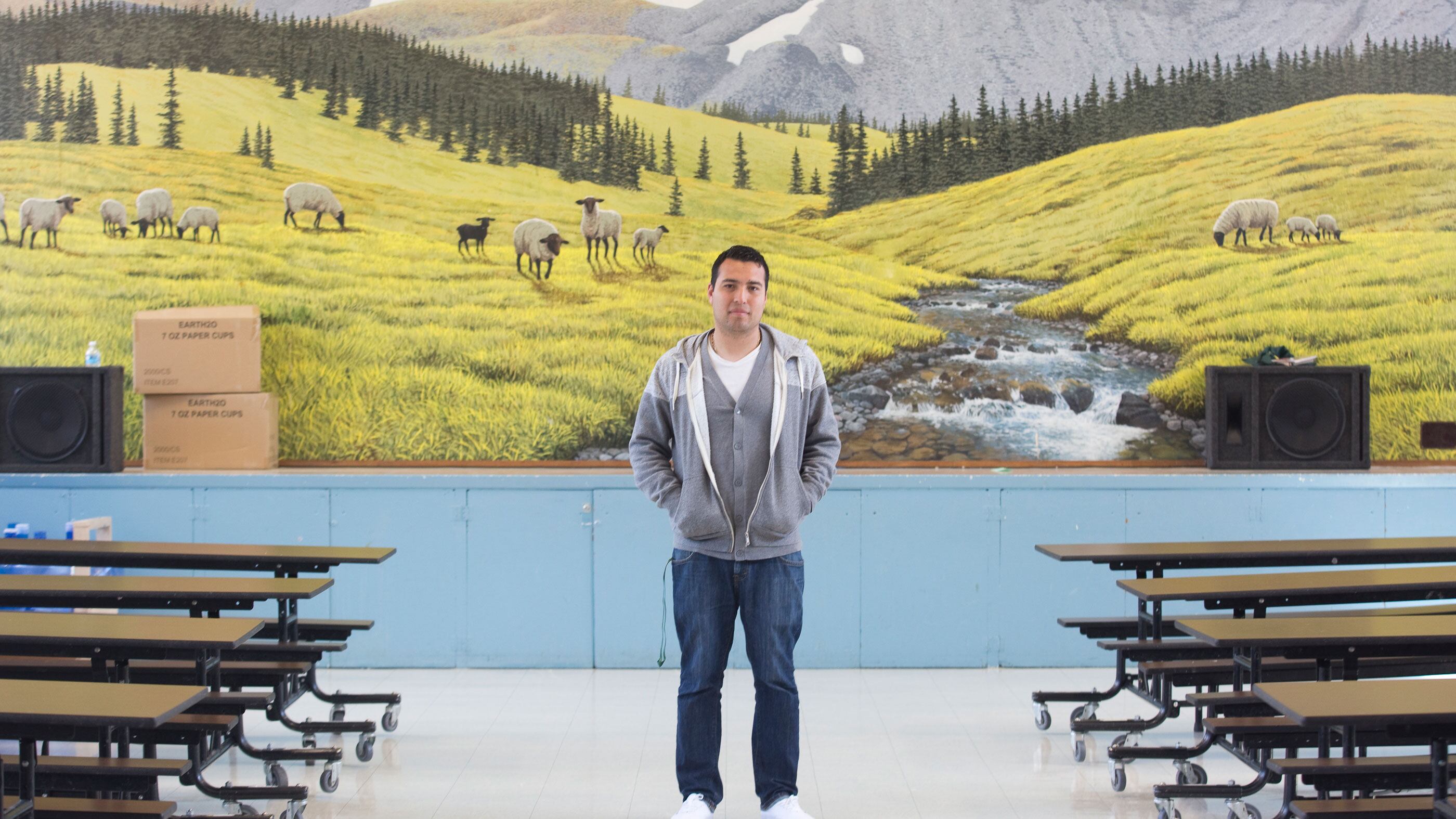My earliest memory is of the day I first came to Portland. I was 5 years old, and my family had just arrived from Michoacan, Mexico. The city seemed enormous—it seemed like every time you turned the corner, it kept growing. It feels like my life started on the day I came to Portland.
Growing up, I was just like everyone else. I started school at Glenfair Elementary, and I went all the way through to Reynolds High School with the same kids I knew from kindergarten. We learned to read together. We bought Slurpees at the 7-Eleven together. We played disc golf in the park together.
No one ever questioned my immigration status, so it took me years to realize that I had no legal status. My younger brother and sister, who are now 13 and 19, were born in the United States, and they're U.S. citizens. But as high school graduation got closer and closer, I started to wonder about my future: What happens next?
Suddenly, I felt different, and I was scared.
I started to think it would be better if I stayed out of the spotlight. I thought twice about attending soccer games or neighborhood events—immigration agents could be there. For the most part, I didn't tell my friends about my status—I was afraid their image of me would change somehow.
Then almost three years ago, after President Obama enacted the Deferred Action for Childhood Arrivals program, I applied for it. DACA status would mean that I could attend school and work. I wouldn't need to be afraid.
Related: A federal immigration sweep turns up the heat on a sanctuary city.
Since then, I've taken classes at Mt. Hood Community College. I started volunteering at Glenfair Elementary, the same school I attended. I got a job as a teacher's assistant where I work one-on-one with kids who need help, and I also work in the after-school program. I volunteered at the church my family had been attending for decades.
Then last December, I was arrested for driving under the influence. I made several wrong decisions that night. But I have made several right decisions since then. I am in treatment. I signed up for a diversion program, and I showed up for all my court dates. I was on my way to completing all the requirements to get this DUII expunged from my records. I started working a third job organizing a food pantry for low-income families.
Around 7:30 on Sunday morning, March 26, when my whole family was sleeping, we were woken up by loud banging at the door. I got up, and my sister answered the door. Officers asked for me. My sister closed the door and came upstairs.
I was getting dressed to go see what they wanted when she said, "I think they're immigration."
Before I opened the door, I turned around and looked at my whole family. They looked so afraid. I told them to stay calm and let me handle it and figure it out. Then I went outside.

The next thing I knew, I was in handcuffs and inside their car. I thought, Where are we going? What's happening? The ICE agents told me I would lose DACA and took me first to a facility in Portland, and then all the way to Tacoma, Wash.
Related: Oregon man faces deportation for trying to sell as $20 baggie of weed.
The funny thing is, even as this was happening, I still couldn't imagine being deported. Life in Mexico feels totally foreign to me—I'm from Portland.
I didn't know it at the time, but while I was in the detention center, people came out from every part of my life to fight for my release. They called anyone who would listen, and my story started to spread quickly.
Incredibly, a day and half after ICE detained me, I was released on bond.
When I think about everyone who fought for me, I am so moved and totally overwhelmed. But I realize it's about more than just me. The people who rallied or called on my behalf made it clear that they reject these policies that are tearing families apart. They know that no one who grew up here should be ripped away from their home.
I still face deportation proceedings. The idea is still unimaginable to me because Portland is my home. And after seeing so many Oregonians fight for me, I know I'm right where I belong.
Francisco Rodriguez wrote this essay for the American Civil Liberties Union. It is reprinted with permission from the ACLU of Oregon.
